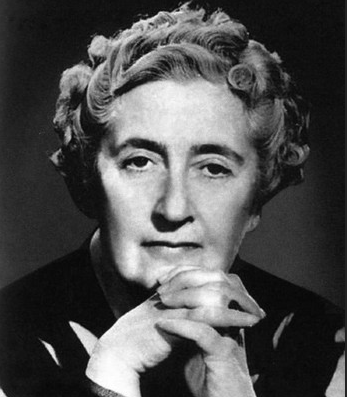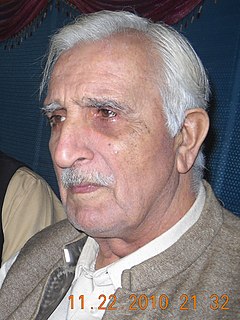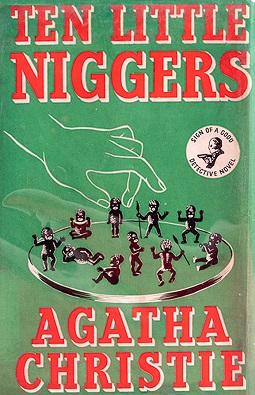
Dame Agatha Mary Clarissa Christie, Lady Mallowan, was an English writer known for her sixty-six detective novels and fourteen short story collections, particularly those revolving around fictional detectives Hercule Poirot and Miss Marple. She also wrote the world's longest-running play, The Mousetrap, which was performed in the West End from 1952 to 2020, as well as six novels under the pseudonym Mary Westmacott. In 1971, she was appointed a Dame Commander of the Order of the British Empire (DBE) for her contributions to literature. Guinness World Records lists Christie as the best-selling fiction writer of all time, her novels having sold more than two billion copies.
Pakistan literature is a distinct literature that gradually came to be defined after Pakistan gained nationhood status in 1947, emerging out of literary traditions of the South Asia. The shared tradition of Urdu literature and English literature of British India was inherited by the new state. Over a big time of period a body of literature unique to Pakistan has emerged in nearly all major Pakistani languages, including Urdu, English, Punjabi, Seraiki, Balochi, Pushto and Sindhi.

Peril at End House is a work of detective fiction by British writer Agatha Christie, first published in the US by the Dodd, Mead and Company in February 1932 and in the UK by the Collins Crime Club in March of the same year. The US edition retailed at $2.00 and the UK edition at seven shillings and sixpence (7/6).

The Secret of Chimneys is a work of detective fiction by British writer Agatha Christie, first published in the UK by The Bodley Head in June 1925 and in the US by Dodd, Mead and Company later in the same year. It introduces the characters of Superintendent Battle and Lady Eileen "Bundle" Brent. The UK edition retailed at seven shillings and sixpence (7/6) and the US edition at $2.00.

Curtain: Poirot's Last Case is a work of detective fiction by British writer Agatha Christie, first published in the UK by the Collins Crime Club in September 1975 and in the US by Dodd, Mead and Company later in the same year, selling for $7.95.

The Murder at the Vicarage is a work of detective fiction by British writer Agatha Christie, first published in the UK by the Collins Crime Club in October 1930 and in the US by Dodd, Mead and Company later in the same year. The UK edition retailed at seven shillings and sixpence (7/6) and the US edition at $2.00.

Ali Imran is a fictional character in various Urdu language detective novels written by Asrar Ahmed under the pseudonym of Ibn-e-Safi. He serves as the titular protagonist in the Imran Series novels. He is usually referred to only by his last name in the context of the novels.

Ibn-e-Safi was the pen name of Asrar Ahmad, a best-selling and prolific fiction writer, novelist and poet of Urdu from Pakistan. The word Ibn-e-Safi is an Arabic expression which literally means Son of Safi, where the word Safi means chaste or righteous. He wrote from the 1940s in India, and later Pakistan after the independence of British India in 1947.
Jasoosi Dunya is a popular series of Urdu detective stories created by Ibne-Safi. Its first novel, Dilaer Mujrim was published in March 1952. In the following 27 years, Ibn-e-Safi wrote 127 books in the series with his last Jasoosi Dunya novel, Sehra'ee Deewana appearing in July 1979, a year before his death.
Sher Muhammad Khan, , better known by his pen name Ibn-e-Insha,, was a Indo-Pakistani Urdu poet, humorist, travelogue writer and newspaper columnist. Along with his poetry, he was regarded as one of the best humorists of Urdu. His poetry has a distinctive diction laced with language reminiscent of Amir Khusro in its use of words and construction that is usually heard in the more earthy dialects of the Hindi-Urdu complex of languages, and his forms and poetic style is an influence on generations of young poets.
A number of villains appear in Ibn-e-Safi's Jasoosi Dunya series.
The Imran Series is an Urdu spy novel series created by Pakistani writer Ibn-e-Safi. Ali Imran is the pivotal character, a comical secret agent who controls the Secret Service as X-2 but appears to work as a normal member of the Secret Service. Except for a handful of people, no one knows his status as the chief of the Service.
Ali Imran is a fictional spymaster and the protagonist of the Imran Series of Urdu spy novels by the Pakistani author Ibn-e-Safi.

Mazhar Kaleem was a Pakistani novelist chiefly known for his Imran Series novels, Urdu spy fiction written within Imran Series mythos created by Ibn-e-Safi.
The publishing industry in Pakistan is hampered both by a low literacy rate (48%).
Zahida Hina is a noted Urdu columnist, essayist, short story writer, novelist and dramatist from Pakistan.
The Imran Series is an Urdu spy novel series created by famous Pakistani writer Ibn-e-Safi. Ali Imran is the pivotal character, a comical secret agent who controls the Secret Service as X-2 but appears to work as a normal member of the Secret Service. Except for a handful of people, no one knows his status as the chief of the Service.
Umrao Jaan Ada is an Urdu novel by Mirza Hadi Ruswa (1857–1931), first published in 1899. It is considered the first Urdu novel by many and tells the story of a courtesan and poet by the same name from 19th century Lucknow, as recounted by her to the author.

And Then There Were None is a mystery novel by the English writer Agatha Christie, described by her as the most difficult of her books to write. It was first published in the United Kingdom by the Collins Crime Club on 6 November 1939, as Ten Little Niggers, after the children's counting rhyme and minstrel song, which serves as a major element of the plot.A US edition was released in January 1940 with the title And Then There Were None, which is taken from the last five words of the song. All successive American reprints and adaptations use that title, except for the Pocket Books paperbacks published between 1964 and 1986, which appeared under the title Ten Little Indians.
Zulfiqar Gilani is a Pakistani media journalist, author, researcher and screenwriter. He was born as Syed Zulfiqar Arshad Gilani at Chawinda, Sialkot District in the 1960s.








